This piece was originally posted on Project Syndicate on December 5, 2016.
Few analysts expected Britons to vote to exit the European Union or Americans to choose Donald Trump as their next president. Yet it did not take long for a consensus explanation of these miscalculations to emerge. When it comes to such complex and consequential developments, however, we should beware of facile reasoning.
The current consensus blames the “elites” – in academia, media, and business – for becoming so caught up in their relatively cosmopolitan and connected world that they failed to listen carefully to less educated and connected groups. Because the latter groups are those that have benefited the least from globalization, they were the most likely to reject supranational institutions (in the case of Brexit) or establishment candidates (in the case of Trump). Ignoring them was, in many ways, an obvious mistake.
There is considerable merit to this view. “Group think” regularly afflicts today’s financial and intellectual elite, including pollsters, who often have similar educational backgrounds, work together, read the same media, and congregate at the same conferences and events, from Davos to Aspen.
Members of this crowd tend to believe that they have absorbed the great lessons of history. They tend to decry racism and even milder forms of ethnocentrism, and are unlikely to reject feminism. Though these groups are not paragons of diversity, there is a widespread recognition of diversity’s value, and the dominance of men, at least, is beginning to decline.
The other common denominator of this group is wealth. While not all members of this group are multimillionaires, they do tend to have the education and skills needed to reap the benefits of economic globalization. As a result, they did not generally recognize rising inequality, particularly in the US, as a major problem until recently (though, to be sure, many of the wealthiest elites have engaged in an unprecedented amount of philanthropy).
It is clear that the cosmopolitan elites who are making consequential decisions in critical sectors, from business and finance to politics, must pay more attention to the grievances of the less fortunate, the less educated, and the less connected. Rather than congregating with like-minded people in silos, they must create platforms that connect people of more diverse backgrounds and circumstances – including those whose experiences with globalization are very different. Such platforms would help to address the fragmentation of public debate.
Yet ideological “bubbles” are not the only problem. For one thing, the elites have failed not only to predict recent populist victories, but also to anticipate that the decidedly non-populist François Fillon would win the French center-right Republicans’ presidential primary by a wide margin. Clearly, ignorance of working-class anger is not the only factor jamming their political radars.
Of course, it is comforting to believe that, if only the facts were better known and people could discuss them more dispassionately, voters would become more unified and politics more constructive. But, even with better, more fact-based discourse, people’s interests will diverge.
Those who voted for Brexit or Trump did not simply fail to understand the true benefits of globalization; they currently lack the skills or opportunities to secure a piece of the pie. Beyond communication, therefore, lies a genuine need for redistributive policies, which are fundamentally not win-win. The main beneficiaries of free trade and technological change must actively compensate the losers through taxation, subsidies, and employment support.
Similarly, the assumption that the liberal-democratic West is largely consistent in its economic and geopolitical interests is fundamentally flawed. The truth is that the traditional Western powers, despite having plenty in common, diverge in many areas, from energy policy – Europe is far more dependent on hydrocarbons than the US – to security. In this context, simply communicating better and agreeing on the facts will not be enough to facilitate agreement on cooperation. Negotiations will be needed, with both sides sacrificing something.
Both of these issues point to a broader flaw in the Western worldview: the belief in win-win solutions. In fact, liberal democracy, in both its center-right and center-left incarnations, is underpinned by the belief that such solutions (the most important one being peace) can benefit a “society” – or, indeed, humanity as a whole – in the long run. Democracy negotiates the twists and turns and manages the short-run sacrifices. But, in the end, everyone benefits.
Of course, failure to secure win-win solutions often results in lose-lose situations. In the first half of the last century, it was widely believed that failing to conquer agricultural space would condemn countries to starvation. Today, similar arguments are made about energy.
The reality is more complicated. For economies to secure the “win” of inclusive growth, the very rich may well have to submit to a form of regulation and taxation, including international rules, that cost them substantial wealth in the long run. While that would not turn the wealthy into losers (they would still be wealthy), one cannot deny that they would incur a loss.
What the liberal-democratic approach does get right is that there is virtually always room for compromise. While not everyone will go home feeling like a true winner, individuals and countries are better off working together and striking deals than they would be if they appropriated and guarded limited space and resources by all available means. The costs of modern conflicts, including domestic political deadlock, are too large, to the point that even the winners end up losing.
In the wake of recent miscalculations, we must recalibrate our political radars – and that means accounting for all potential sources of interference, not just those that fit a neat narrative. Here, the fundamental difference in the worldview of liberal or social democrats and hardline ideologues, whether nationalist or otherwise, may be the most consequential. The former should acknowledge medium-term win-lose situations, but maintain their long-term faith in gradual democratic change at home, while working to uphold international peace.
The Brookings Institution is committed to quality, independence, and impact.
We are supported by a diverse array of funders. In line with our values and policies, each Brookings publication represents the sole views of its author(s).
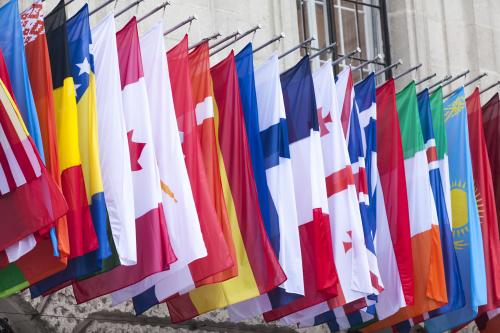
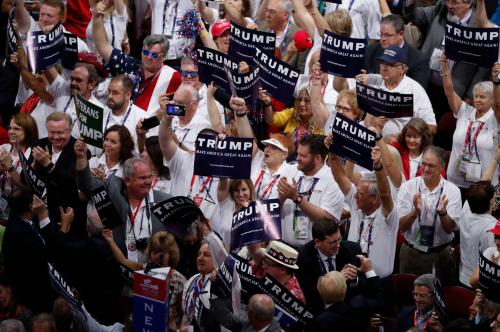
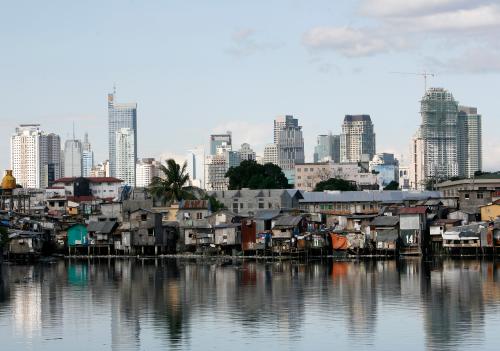
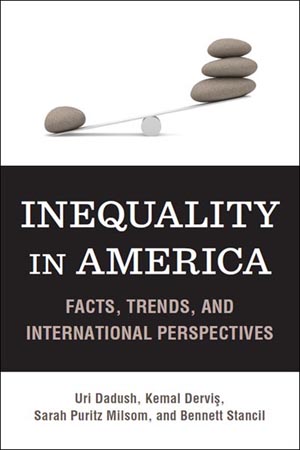
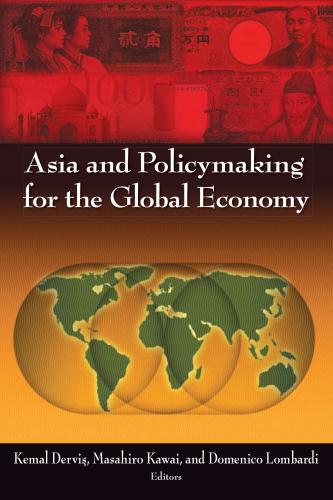





Commentary
Op-edThe win-win fantasy of liberal democracy
December 5, 2016